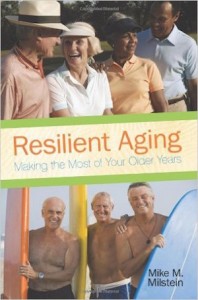I was a chairperson of academic departments in two different universities. In both situations one of my most difficult tasks was dealing with faculty members who were unhappy, angry or frustrated about one thing or another. Of course, as chairperson I was often the recipient of most of dissatisfactions. The reasons for their ire varied. It might have been be about salary issues, teaching assignments, collegial relationships, promotion and tenure tensions, too many meetings, other service expectations, or whatever else they felt was unfair and discriminatory toward them.
Of course, all these complaints were dumped on the chairperson’s desk (mine!). Worst of all, the implicit message was that I was a contributor to their miseries, which, as far as they were concerned, meant I was not providing effective leadership.
Thankfully, such faculty members were in the minority. However, as with the squeaky wheel, they often made enough discordant noise to seem like they were in the majority.
I learned some important lessons from these experiences. First, the fact that I encountered them at two different universities helped me realize that it was not just the quirkiness of people at a specific place. No, it is just the nature of people. There will always be some group members who see the world negatively, one that is out to get them. As a result of this half empty glass attitude they are unhappy and spread their unhappiness to others if they can.
Second, I learned that it was my choice how I dealt with their challenges. I could respond in kind or defuse the situation by being sympathetic about their unhappiness. Giving them the courtesy of listening to their concerns without trying to convince them that they were off base or worse went a long way toward defusing their anger. In fact, when I was in a good place myself and gave my total attention to their concerns their bodies visibly relaxed and their speech volume became more tempered.
Third, I learned that I could accept them, if not embrace them, by trying to realize the pain they might be feeling and how lucky I was that I was not in such a difficult place. In fact, I created a useful mantra—THANK GOODNESS I’M NOT THEM—that I would repeat to myself while dealing with them. It worked wonderfully, leaving me more empathetic and definitely more relieved that what they were dealing with were not things I let into my being so they did not become part of my reality.
I still find myself having to invoke the “thank goodness I’m not them” mantra almost daily. There will always be some people who trigger the need for repeating the mantra. For example, I’m the president of a sports club management committee. Until recently the committee included a member who disagrees with most everyone else about matters that are being discussed. It is always useful to think through all sides of an issue, but he emphasizes only the negative issues regarding the spending of club money, modifying policies that need to be updated, or whatever. I suspect he may be seeking recognition of his relevance, but his behaviours are negative and detrimental. Thank goodness I’m not him!
Another club member provides useful services by keeping the grounds in good condition. But he guards this role tenaciously, turning away as much as possible, any other members who want to help out. Thank goodness I’m not him!
Someone in my community who has taken on responsibilities to organise and communicate with members of a religious group has made it clear that things have to be done his way, which has alienated many of the members in the process. Thank goodness I’m not him!
Of course, the same sort of dynamic often occurs in casual daily encounters. For example, people who are being ticketed for parking infractions, taking their unhappiness out on the person giving the ticket, sales people making cold calls and being abused by those they are calling on, and younger people not having the patience to deal with older people and making their frustration clear.
Dealing with such people is just part of being alive. You can either allow it to get you down and upset or you can try to understand, empathise, and let it pass right through by saying thank goodness I’m not them!
By Mike Milstein
 Mike is the author of Resilient Aging: Making the Most of Your Older Years. Available on Amazon, Kindle version and paper back
Mike is the author of Resilient Aging: Making the Most of Your Older Years. Available on Amazon, Kindle version and paper back









Join the Discussion
Type out your comment here:
You must be logged in to post a comment.